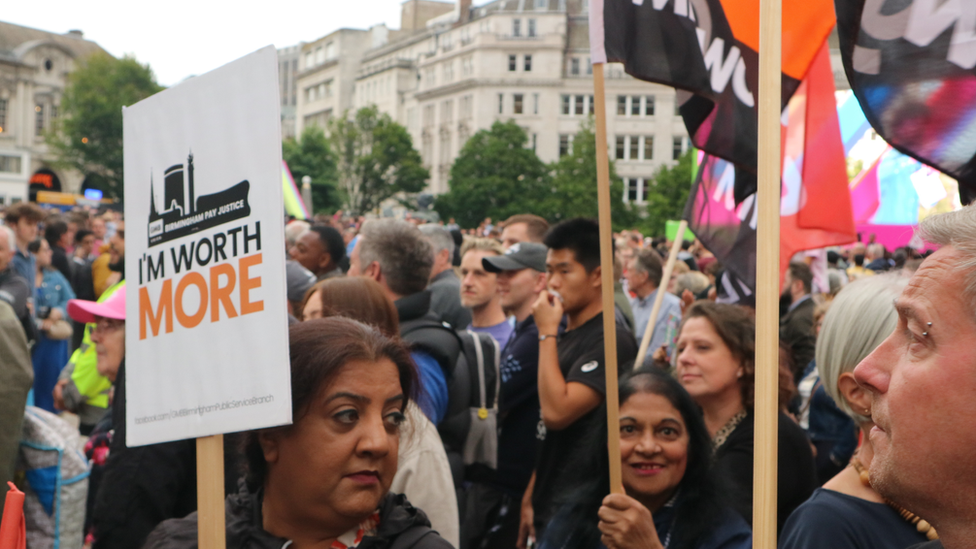The tough choices facing cash-strapped councils
- Published
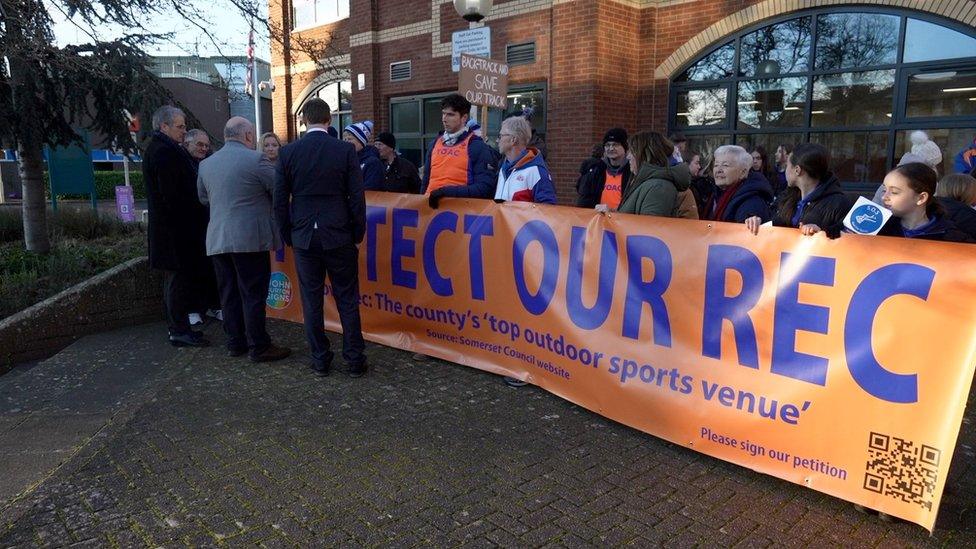
Early on a freezing morning, protesters gathered outside Somerset Council's offices in Taunton clutching banners and placards.
They're fighting to save Yeovil Recreation Centre - a sports facility used by athletics, hockey and football clubs - which could lose its council funding and face closure.
It's just one measure being proposed by Somerset Council as it tries to save £100m, but it has come up against fierce opposition.
Fourteen-year-old Isaac is a pole vaulter who says the recreation ground is essential for him when his father, who's in the Royal Navy, is away.
"I love coming here," he says. "Because of my dad going away it's one of the things that keeps me going."
Jo Stevenson, club secretary for Yeovil and Sherborne Hockey Club, says: "I think the bottom line is for a thriving community, it isn't just about providing essential services, it's also about providing sports, leisure and culture opportunities because that will encourage community cohesion and social interaction between different age groups and improve life chances, not just for the younger people but for older people as well."
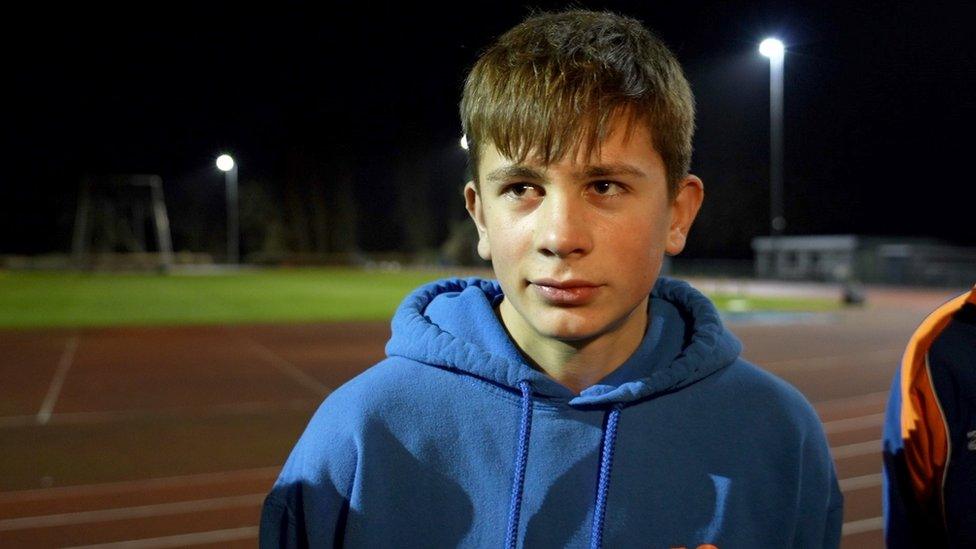
Isaac is among those who benefit from the sports facility in Yeovil
Councils across the country are currently going through the process of setting their budgets for the next financial year, which starts in April.
Many are proposing cuts to services, from support for vulnerable people to museums, theatres and recreational facilities.
In Somerset, the council has requested permission from the government to increase council tax by 10%, double the 5% currently allowed. It's also looking into switching off CCTV cameras, closing five recycling centres, shutting public toilets and cutting funding for support services such as the Citizen's Advice Bureau - among other measures.
The Lib Dem council leader, Bill Revans, says it has little option but to review all but essential services due to funding shortfalls.
"We have very little choice in how we are allocating what little resources we have left," he says.
"Within the next few years you will see more and more councils facing dilemmas like Somerset. We might be closer to having to make some of the very unpleasant and difficult decisions, but all councils are travelling in the same direction and we need a national solution to a national problem."
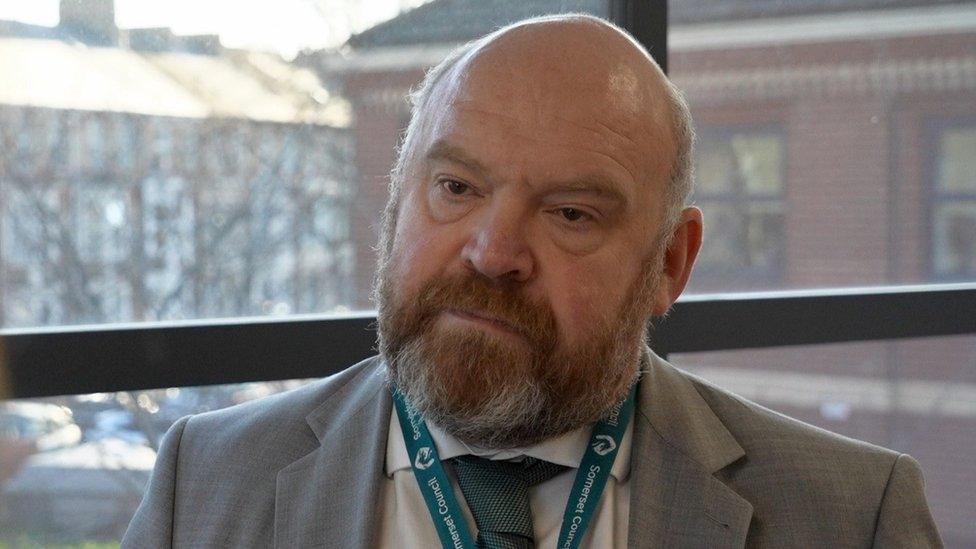
Bill Revans, the leader of Somerset Council, says local authorities are facing difficult decisions over how to allocate their limited resources
So what is going on?
Well, there have been warnings about the pressure on council finances for some time.
A handful of local authorities have issued what are called Section 114 notices, which means they can't balance their books and are in effect bankrupt.
In these cases there have been questions over financial decision-making and governance, with Levelling Up Secretary Michael Gove blaming "poor leadership" at a recent Commons committee hearing, though he did acknowledge the pressure local government faces.
But across the sector there have been repeated warnings that other councils could soon find themselves in the same position, with the Local Government Association and the County Councils Network predicting future budget shortfalls that could run into billions.
They say although the government has increased the amount of funding available to councils in recent years, this is not keeping pace with inflation and other rising costs.
There's particular pressure on housing services, with growing demand for temporary accommodation, as well as adult social care and children's services - specifically the cost of school transport for children with special educational needs and disabilities.
The government is currently consulting on the amount of funding that will be available to councils in England from April.
It's proposed a total package worth of £64bn, assuming maximum council tax increases, which it says represents an increase of 6.5% compared with the year before - but there is cross-party pressure on ministers to offer more.
Earlier this week more than 40 Conservative MPs wrote to Prime Minister Rishi Sunak, warning about the combined impact of council tax rises and cuts to services on local communities and urging him to increase the funding settlement for local government ahead of a vote on the issue next month.
Discussions are ongoing and talks are said to be "constructive", though if the government does offer more funding it's likely to be less than the £750m extra council leaders are thought to be lobbying for.
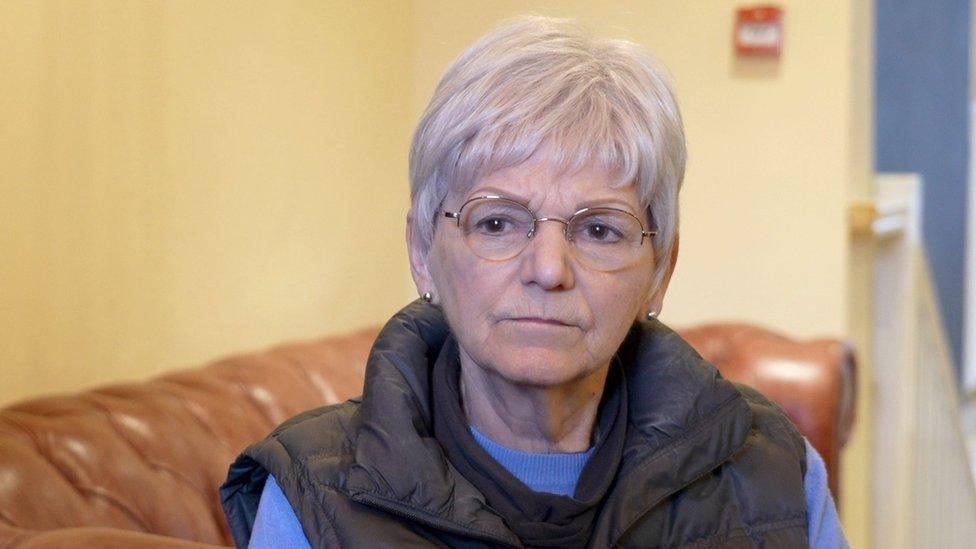
Sue Glenn thinks Somerset Council should look at in-house savings before cuts to services
Back in Somerset, there is concern at the impact of the proposed cuts on the local community.
Taunton resident Sue Glenn has MS, and with limited mobility she's worried about feeling safe in the town centre if CCTV cameras are switched off, saying the council should look elsewhere to save money.
"It would make me and others feel vulnerable," she says. "I walk with a stick, you know it makes me nervous. If you turn off CCTV, nobody can see what's going on.
"I think the first thing they should look at is their own in-house savings. Where are the savings we can make before we hit the public?"
Somerset Council, which recently underwent a significant reorganisation, is still looking at options before final decisions are made next month.
But there's little doubt local government is a sector under huge pressure, and it could be communities that end up paying the price.
Related topics
- Published23 January 2024
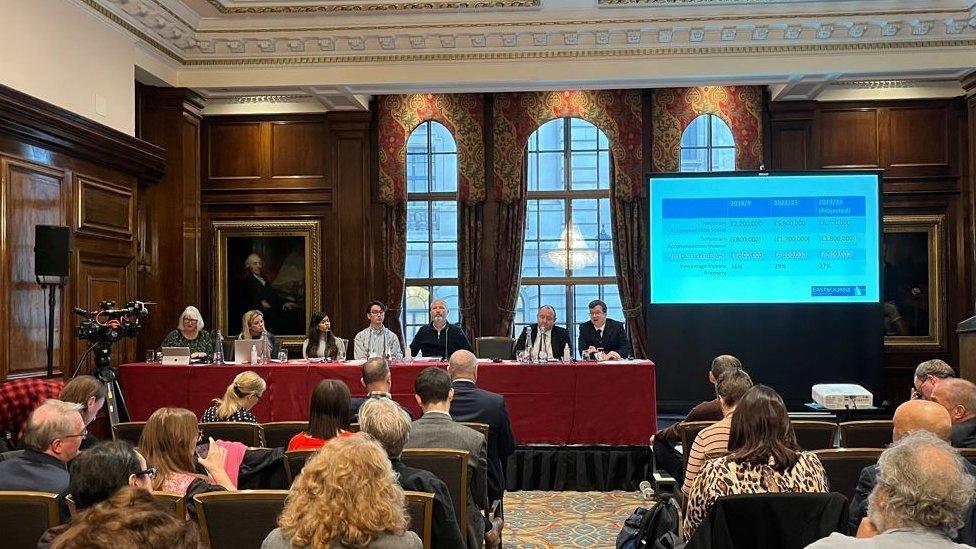
- Published22 January 2024
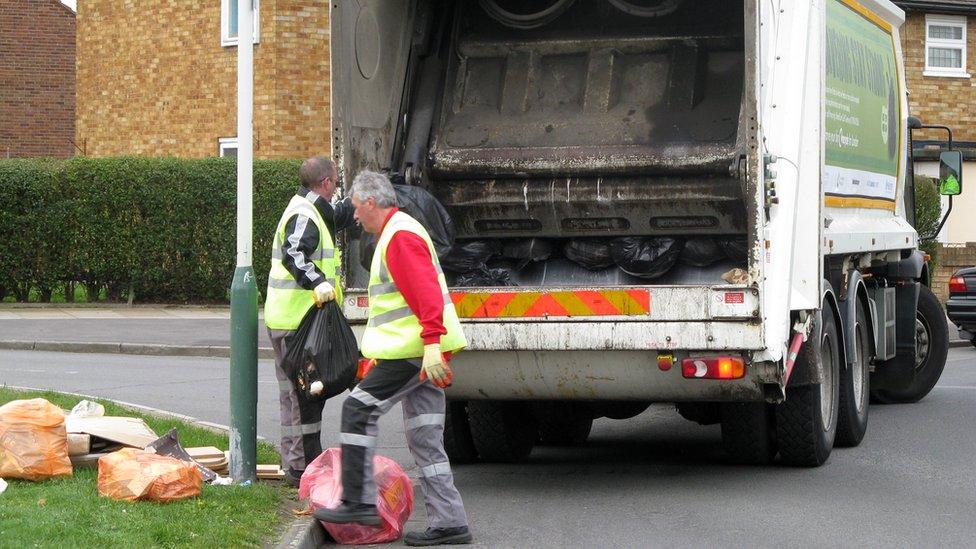
- Published18 December 2023
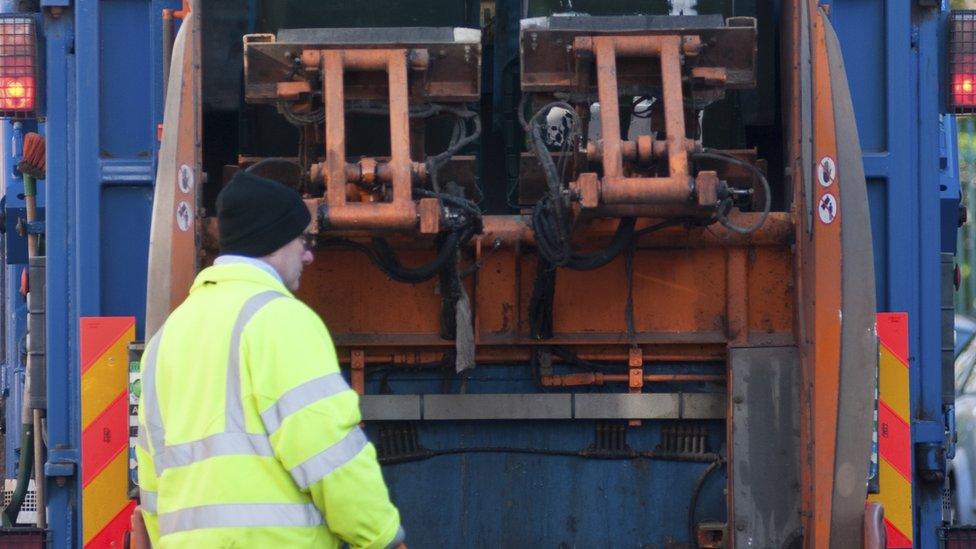
- Published5 March 2024
